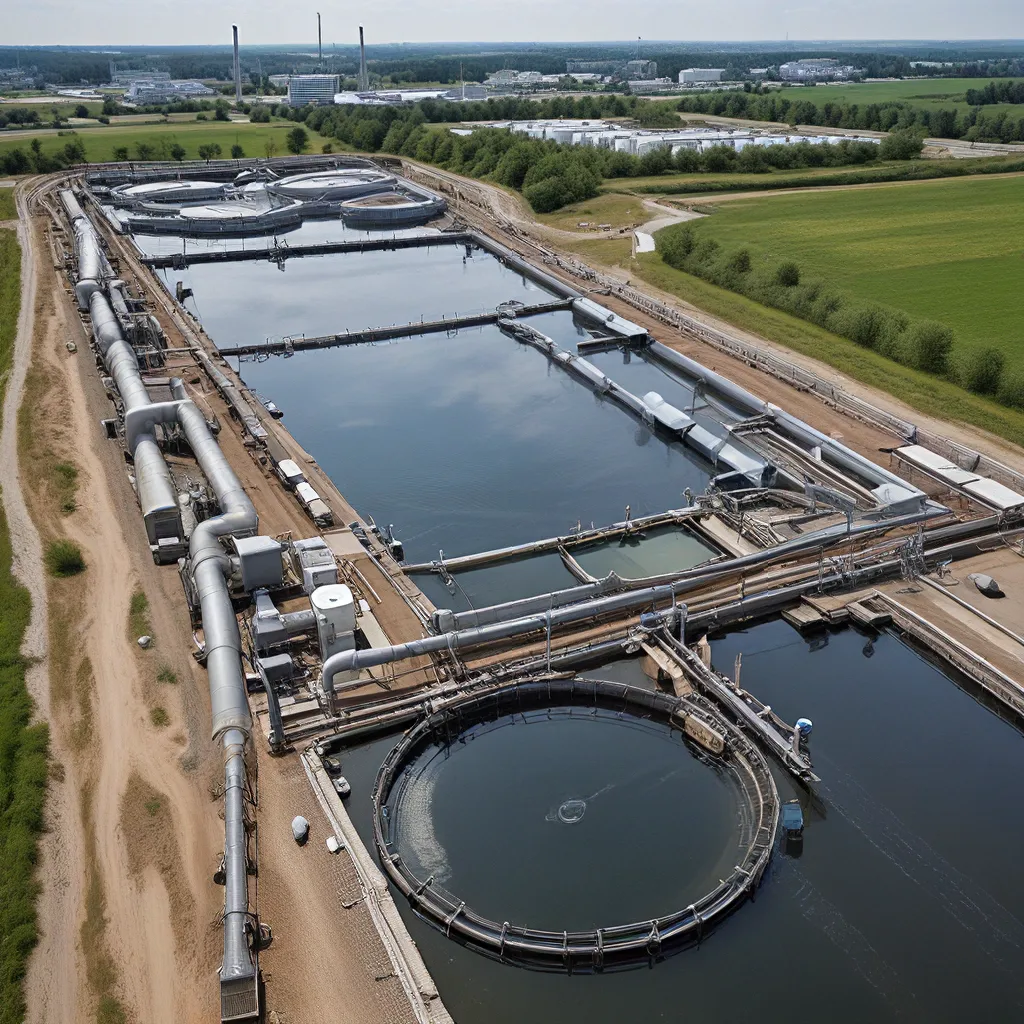
As an environmental enthusiast, I’ve always been fascinated by the hidden potential within our wastewater systems. Little did I know that this unassuming network of pipes and treatment plants could hold the key to unlocking the next chapter of our hydrogen economy. It’s a captivating proposition that has the power to transform the way we think about waste and energy.
Diving into the Hydrogen Revolution
Let’s start by exploring the hydrogen economy – a vision for a future where this versatile element takes center stage as a clean, renewable source of energy. Experts believe that hydrogen could play a pivotal role in reducing our reliance on fossil fuels and paving the way for a more sustainable future. But the big question is, where will all this hydrogen come from?
This is where the wastewater treatment industry steps into the spotlight. Believe it or not, our municipal and industrial wastewater streams are actually teeming with hydrogen-producing microorganisms. These tiny powerhouses, known as anaerobic bacteria, have the remarkable ability to break down organic matter and release hydrogen as a byproduct.
The U.S. Department of Energy has recognized the immense potential of harnessing this natural process, and they’re actively investing in research to optimize the hydrogen production capabilities of wastewater treatment facilities.
Unlocking the Power of Wastewater
Imagine a future where our wastewater plants don’t just purify water but also serve as hydrogen production hubs, providing a clean and renewable energy source for our communities. This vision is slowly becoming a reality, and the possibilities are truly exciting.
One of the key innovations driving this transformation is the concept of bioelectrochemical systems (BESs). These advanced treatment technologies leverage the electrochemical activity of certain bacteria to extract hydrogen directly from the wastewater. By strategically setting up specialized reactors, researchers have demonstrated the ability to produce hydrogen gas that can be captured, purified, and used for a variety of applications.
The Department of Energy’s Office of Energy Efficiency and Renewable Energy has been at the forefront of funding and supporting these cutting-edge BES projects, recognizing their potential to revolutionize the wastewater-to-energy landscape.
Towards a Circular Economy
But the benefits of this hydrogen-centric approach to wastewater treatment go far beyond just energy production. By tapping into the inherent resource recovery potential of our wastewater streams, we can also unlock new opportunities for a more circular economy.
Imagine a world where the organic matter and nutrients present in wastewater are not just removed and discarded, but rather repurposed and recycled. Picture fertilizers and soil amendments derived from the nutrient-rich sludge, or even the recovery of precious metals and other valuable materials.
Research suggests that this holistic approach to wastewater management can lead to significant reductions in waste, energy consumption, and greenhouse gas emissions – all while generating new revenue streams and creating a more sustainable, closed-loop system.
Embracing the Future
As I delve deeper into this topic, I can’t help but feel a growing sense of excitement and optimism. The wastewater treatment industry is on the cusp of a transformative shift, one that could have far-reaching implications for our energy landscape, our environmental footprint, and our overall sustainability as a society.
Of course, this journey is not without its challenges. Scaling up these innovative technologies, securing the necessary funding and infrastructure, and overcoming regulatory hurdles will all require a concerted effort from policymakers, industry leaders, and the public.
But I believe that the potential rewards far outweigh the obstacles. By embracing the hydrogen-powered future of wastewater treatment, we can not only reduce our reliance on fossil fuels and mitigate climate change, but also unlock new economic opportunities and foster a more resilient, circular economy.
It’s an ambitious vision, to be sure, but one that I’m confident we can achieve with the right mindset, collaboration, and commitment to sustainability that I know the team at Alpha Wastewater shares.
So let’s dive in, shall we? The journey towards a hydrogen-powered, resource-recovering wastewater treatment system is just getting started, and I can’t wait to see what the future holds.